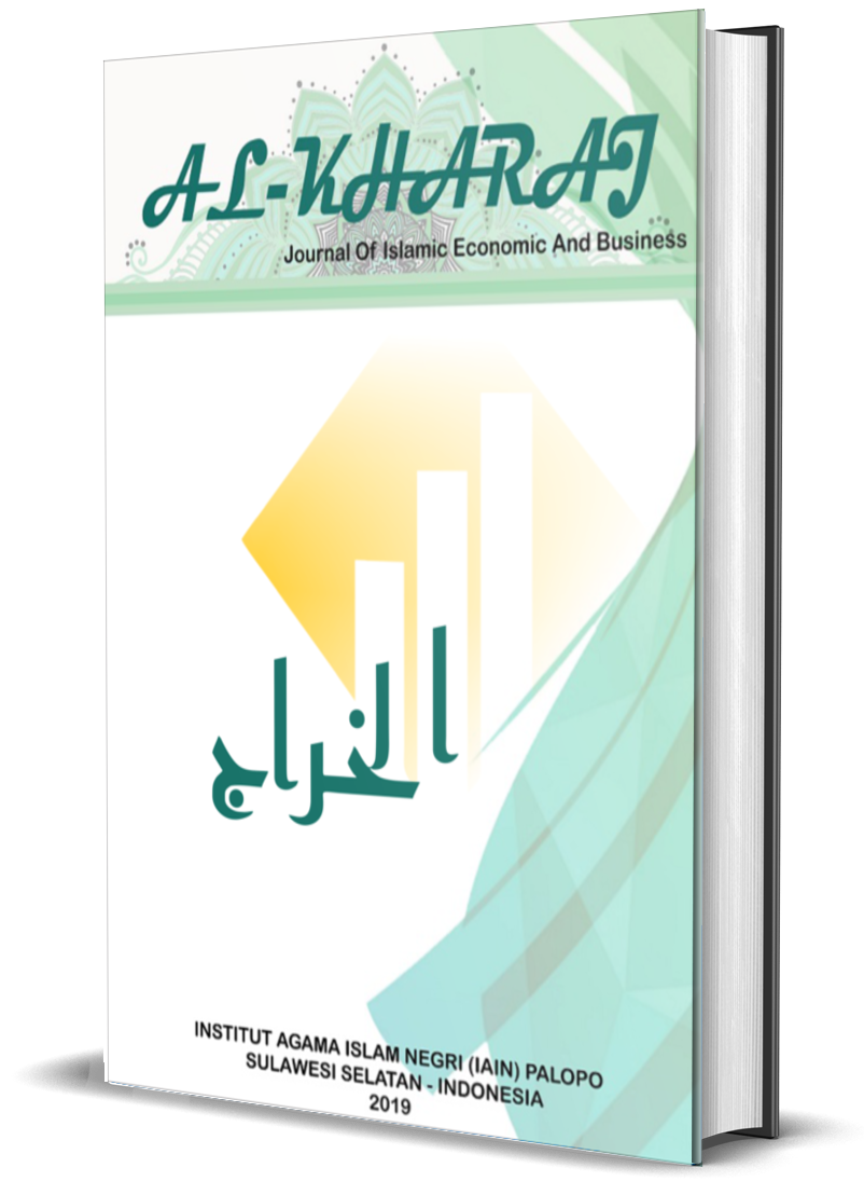Analysis Of Local MSME Community Business Models Towards MSME Sustainability: An Nvivo Approach To Understand Business Perceptions And Practices
DOI:
https://doi.org/10.24256/kharaj.v7i4.8398Keywords:
MSME, Business Models, Business PracticesAbstract
This study analyzes the business model of local MSME communities in supporting business sustainability in Medan City. The main focus is on the strategies implemented by MSME communities to enhance the competitiveness and sustainability of their members' businesses, as well as the challenges faced in adopting sustainable business models. This research employs a descriptive qualitative method with a case study approach. Data were collected through in-depth interviews, direct observations, and document analysis. Data analysis was conducted using NVivo 12 Plus software with the Miles and Huberman model, including data reduction, data presentation, and conclusion drawing. The findings indicate that MSME communities such as Bazar Orang Medan (BOM), Rumah Kawan Bunda (RKB), and About Women Community (AWC) play a significant role in supporting their members' business sustainability through digital marketing, business management training, and access to networks and resources. The business strategies implemented are based on the Triple Bottom Line (TBL) approach, covering economic, social, and environmental aspects. However, the environmental aspect has not been fully integrated into MSME business practices. The MSME community acts as a catalyst for business desires, and further synergy is needed between the government, society, and business actors to develop more sustainable business strategies.
References
Adawiyah, W. R. (2014). Faktor Penghambat Pertumbuhan Usaha Mikro Kecil Menengah (UMKM): Studi di Kabupaten Banyumas. JKMP (Jurnal Kebijakan Dan Manajemen Publik), 2(2), 165.
Anggraini, D., & Nasution, S. H. (2013). Peranan KUR Bagi Pengembangan UMKM Di Kota Medan. Jurnal Ekonomi Dan Keuangan, 1(3), 105–106.
Dewi, N. A., & Anggaini, T. (2025). Menelusuri ‘ Illat Hukum dalam Ushul Fiqh: Sebab, Hikmah, dan Implementasinya dalam Penetapan Hukum Islam. Indonesian Journal of Multidisciplinary Scientific Studies (IJOMSS), 3(2), 33–40.
Dimas Surya, Arham Wahyudi, Tasya Fadilah, Imsar Imsar, N. A. D. (2024). Analysis of Cointegration and Causality between Sharia Interbank Money Market (PUAS), Bank Indonesia Sharia Deposit Facility (FASBIS) and Bank Indonesia Sharia Certificate (SBIS) to Indonesia’s Economic Growth. International Collaboration Conference on Islamic Economics, 2(1).
Huberman, M. (1992). Analisis Data Kualitatif. Universitas Indonesia Pers.
Hutagalung, R. A., Nainggolan, P., & Panjaitan, P. D. (2021). Analisis Perbandingan Keberhasilan UMKM Sebelum Dan Saat Menggunakan Quick Response Indonesia Standard (QRIS) Di Kota Pematangsiantar. Jurnal Ekuilnomi, 3(2), 94–103.
Karniawati, N., Nurfatin, N., Cristian, E., & Karyana, Y. (2023). UMKM in Improving The Economy of Rural Communities. Proceeding of International Conference on Business, Economics, Social Sciences, and Humanities, 6, 724–728. https://doi.org/10.34010/icobest.v4i.440
Noor, J. (2011). Metode Penelitian: Skripsi, Tesis, Disertai Dan Karya Ilmiah. Kencana Prenadamedia Group.
Nurul Aulia Dewi, Alika Hariani, P. P. R. (2023). Analisis Manfaat Media Sosial Sebagai Pengembangan Umkm Di Kabupaten Deli Serdang. Kabillah (Journal of Social Community), 8(14), 129–143. https://doi.org/https://doi.org/10.35127/kabillah.v8i2
Ramdhan, M. (2021). Metode penelitian. Cipta Media Nusantara.
Sugiri, G. (2022). Analisis Strategi Pemasaran dalam Upaya Peningkatan Daya Saing UMKM Kabupaten Bekasi. Journal of Economic and Management (JECMA), 4(1), 1–10. https://doi.org/10.46772/jecma.v4i1.1057
Tetty Handayani Siregar, Nurul Aulia Dewi, Iskandar Muda, A. S., & Yusrizal. (2025). Pengaruh Pemahaman Dan Tingkat Kepercayaan Masyarakat Terhadap Rendahnya Inklusi Keuangan Berbasis Fintech Di Kabupaten Asahan. JSE: Jurnal Sharia Economica, 4(2), 160–171. https://doi.org/https://doi.org/10.46773/jse.v4i1
U, D. D. T. (2013). Pengembangan Usaha Mikro Kecil dan Menengah (UMKM) Berbasis Ekonomi Kreatif di Kota Semarang. Universitas Diponegoro Semarang.
Ukmindonesia.id. (2023). Refleksi 2022 dan Outlook 2023, Kemenkop UKM Ungkap Pencapaian dan Rencana Untuk Pelaku UMKM.
Vera Maria, Ahmad Fauzan Aziz, & Depi Rahmawati. (2024). Meningkatkan Daya Saing UMKM Lokal melalui Strategi Pemasaran Digital di Era Digital. OPTIMAL Jurnal Ekonomi Dan Manajemen, 4(2), 208–220. https://doi.org/10.55606/optimal.v4i2.3471
Yulianingsih. (2021). Faktor-Faktor Yang Mempengaruhi Keberhasilan Umkm Melalui Pendekatan Faktor Internal Dan Faktor Eksternal. Jurnal Sosial Humaniora, 12(1), 98–108.
Yuniar, R., Hasanah, M., Handy, M. R. N., Subiyakto, B., & Putra, M. A. H. (2022). Creative Economy on UMKM Sulam Arguci in Banjarbaru as a Learning Resource on Social Studies. The Kalimantan Social Studies Journal, 3(2), 134. https://doi.org/10.20527/kss.v3i2.4416
Downloads
Published
How to Cite
Issue
Section
Citation Check
License
Copyright (c) 2025 Reni Ria Armayani Hasibuan, Nur Fadhilah Ahmad Hasibuan, Nurhayati, Ahmad Wahyudi Zein

This work is licensed under a Creative Commons Attribution-ShareAlike 4.0 International License.
Authors retain copyright and grant the journal right of first publication with the work simultaneously licensed under a Creative Commons Attribution-ShareAlike 4.0 International License. In line with the license, authors are allowed to share and adapt the material. In addition, the material must be given appropriate credit, provided with a link to the license, and indicated if changes were made. If authors remix, transform or build upon the material, authors must distribute their contributions under the same license as the original.









